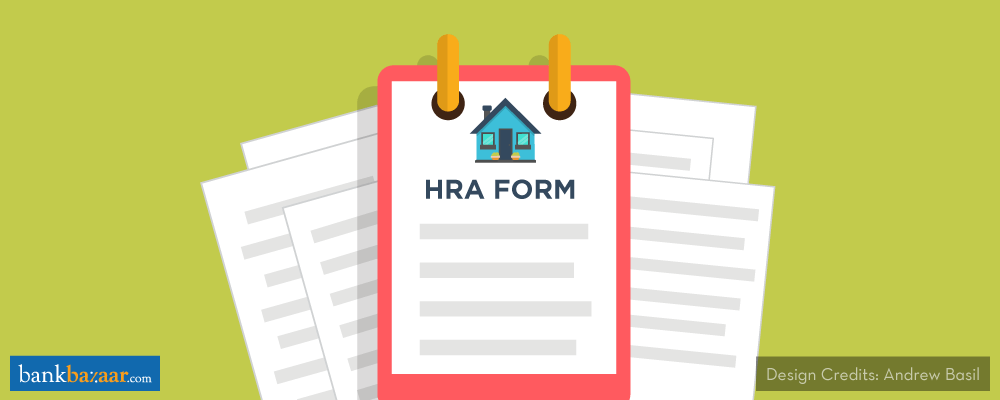Here are some important points to keep in mind while claiming tax exemption of House Rent Allowance.

House Rent Allowance or HRA is an important component of your salary break-up. You can claim a deduction on HRA when computing your tax liability or when filing income tax returns. You can even claim HRA for tax purposes even if you are living with your parents but paying rent to them, and even if your employer does not give you HRA.
If you are planning to claim HRA exemption to save tax, follow the checklist given below to avoid a rejection.
Rent Agreement:
It is important to submit rent agreement to your employer when computing your tax liability. Rent agreement must mention the parties concerned, rent amount, complete address of the place you are residing in and time period of the agreement. If you are paying utility or maintenance bills, you must ask your landlord to include that in the rental agreement.
Ask Your Landlord For His PAN If You Pay Rent Over Rs. 1 Lakh Per Annum:
Your employer will ask you to submit your landlord’s PAN if you are paying rent over Rs 1 lakh per annum. So, you must check beforehand if your landlord is willing to share his PAN with you for tax purposes. If the PAN of your landlord is not available, you will have to obtain Form 60 duly filled in by your landlord. This will help you avail HRA deduction even if landlord’s PAN is unavailable.
Rental Agreement With Parents:
If you are staying with your parents and paying a rent, then you need to ensure an agreement between the landlord (your parents) and tenant (you) is done. Also, your parents must show the rent as rental income under ‘income from other sources’ in their income tax returns. However, rent paid to a spouse does not qualify for HRA deduction as you both are meant to stay and live together.
When Rent Exceeds Over Rs. 50,000 per month:
When you are paying rent more than Rs. 50,000 to your landlord, you need to take a few steps under the Income Tax Act. You must deduct TDS at 5 percent on the rent paid to your landlord when it exceeds over Rs. 50,000 per month. Otherwise, an interest of 1 percent will be levied on you if you fail to deduct TDS.
Rental Agreement Must Have The Sharing Ratio If The Accommodation Is Shared:
In metro cities, friends and colleagues come together to share a flat or an accommodation and divide the rent among themselves. In such a case, the rental agreement must have the sharing ratio for rent, utility and maintenance bills clearly mentioned to claim HRA deduction.
Make Electronic Transfer:
It’s always important to make electronic transfer rather than cash payment for rent. This will help you to have concrete evidence to claim HRA deductions for tax benefit. Besides, if you are making some excess rent payment in cash over and above the amount mentioned in the rental agreement, you will receive HRA deductions on the amount listed in the agreement only. So, be careful to get everything documented when it comes to renting.
Furnish Form 10B If You Don’t Get HRA Or If You Are Self-Employed:
There’s hope for salaried individuals who do not get HRA or who are self-employed and wish to claim tax benefit for rental payment. Under section 80 (GG) of the Income Tax Act, such people can claim benefit by furnishing form 10B.
Rent Receipts:
Furnishing a rent receipt to the employer is mandatory especially if the rent paid per month exceeds Rs. 3,000. You should thus ask for a receipt for the rent paid every month.
Keep these important pointers in mind and claim HRA for tax deduction hassle free.
BankBazaar is a leading online marketplace in India that helps consumers compare and apply for Credit Card, Personal Loan, Home Loan, Car Loan and insurance.